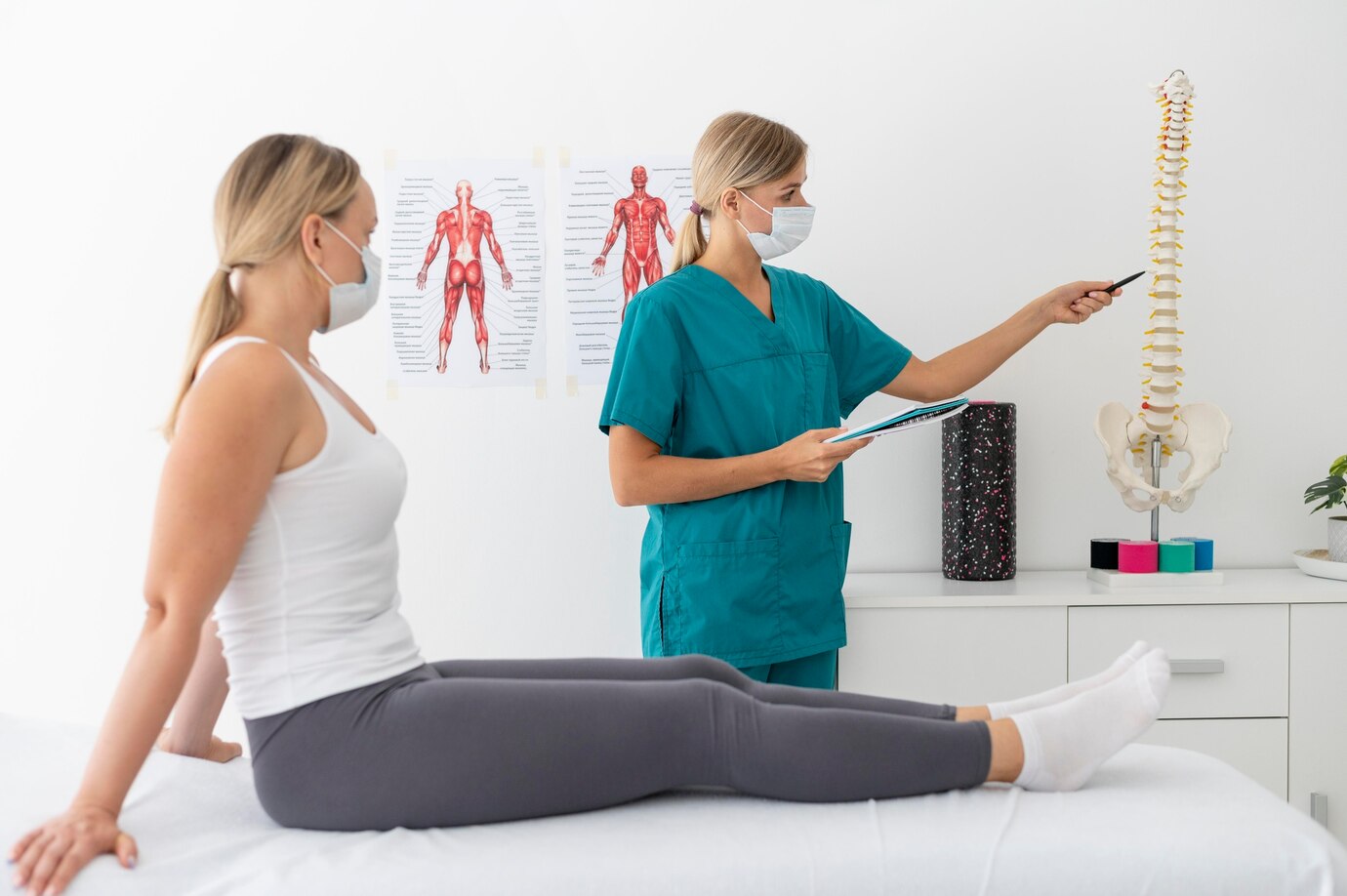

Notice: Coppell Office Moving Soon | New Address: 897 N MacArthur Blvd, Ste 110, Coppell, TX 75019


Last updated on July 17, 2025
A herniated disc occurs when one of the soft, rubbery cushions between the vertebrae of your spine becomes problematic. These spinal discs consist of a gel-like center called the nucleus, surrounded by a firmer, rubbery exterior known as the annulus. When the nucleus pushes out through a tear in the annulus, it results in a herniated disc, also known as a slipped or ruptured disc.
What might surprise you is that many people with a herniated disc don't experience any symptoms at all. For those who do, the symptoms can often improve over time, with surgery being rarely necessary. Let's explore this condition and symptoms, and discuss the available treatment options.
A herniated disc, also known as a slipped or ruptured disc, occurs when the soft, gel-like center of a spinal disc pushes through a tear in the tougher outer layer. This displacement can irritate nearby nerves, often leading to pain, numbness, or weakness in the back, neck, or limbs.
The spine is made up of a series of vertebrae cushioned by discs that act as shock absorbers and allow flexibility. When a disc becomes damaged due to age, injury, or repetitive stress, the inner material can leak out, causing what is medically referred to as disc herniation.
Herniated discs most commonly occur in the lower back (lumbar spine), but they can also appear in the neck (cervical spine). Depending on the location and severity, individuals may experience symptoms ranging from mild discomfort to severe, radiating pain that affects daily function.
While sudden and sharp back pain in day-to-day activities can be one indicator, doctors rely on tests and examinations to accurately diagnose herniated discs. These include:
Herniated discs are quite common. As per research, it affects about 2% of the population annually. However, diagnosing the exact cause can be difficult.
Herniated disc symptoms can vary depending on the location and severity of the disc herniation. One of the most common areas affected is the lower back, and in such cases, patients often experience back hernia symptoms such as sharp pain, numbness, or tingling that radiates down the legs (sciatica). In the neck, symptoms may include arm pain, weakness, or difficulty with fine motor skills.
Some common signs and symptoms of herniated disc include:
Recognizing these symptoms early can help prevent further complications. If you're experiencing disc herniation symptoms that interfere with daily life, it’s important to seek medical evaluation for a proper diagnosis and treatment plan.
While sudden and sharp back pain in day-to-day activities can be one indicator, doctors rely on a series of tests and examinations to accurately diagnose herniated discs. These include:
These diagnostic methods help create a clear picture of the condition, guiding appropriate treatment plans for relief and recovery.
Taking enough rest and avoiding movements that exacerbate the pain can be beneficial for those dealing with herniated disc pain. Other herniated disc treatment options can be:
Physical therapy and alternative care: Physical therapy and alternative care, such as chiropractic and acupuncture, can be options.
Surgery might be necessary when the spinal cord is heavily affected due to a herniated disc. In rare cases, the herniated disc may compress the entire spinal cord, including all nerves of the cauda equina. This condition can lead to increased pain, discomfort, or loss of bladder control, making surgery a critical consideration.
Did you know? Maintaining a strong core can reduce the risk of getting a herniated disc. Your core muscles act like a natural corset, providing vital support to your spine. However, if you’re still experiencing discomfort, here are some strategies to help reduce the risk of developing this painful condition:
Spinal health is extremely important for living a healthier and fitter life. Incorporating simple yet effective habits into your daily routine can make a difference in maintaining a healthy spine and preventing herniated discs. By staying active, practicing good posture, lifting properly, and maintaining a healthy weight, you can support your spinal health and enjoy a pain-free life. Remember, taking farsighted steps today can lead to a healthier, more comfortable future for your spine.
Imagine living pain-free and comfortable every day, that's our mission at Apex Interventional Pain & Spine. Our aim is to provide you with the most effective and advanced treatments for herniated discs and other spinal health concerns.
At Apex, we offer professional care, personalized treatment plans, and ongoing support to ensure you find lasting relief. Don’t wait to reclaim your life. Contact us now or call (972) 833-PAIN (7246) to start your journey toward a pain-free future.